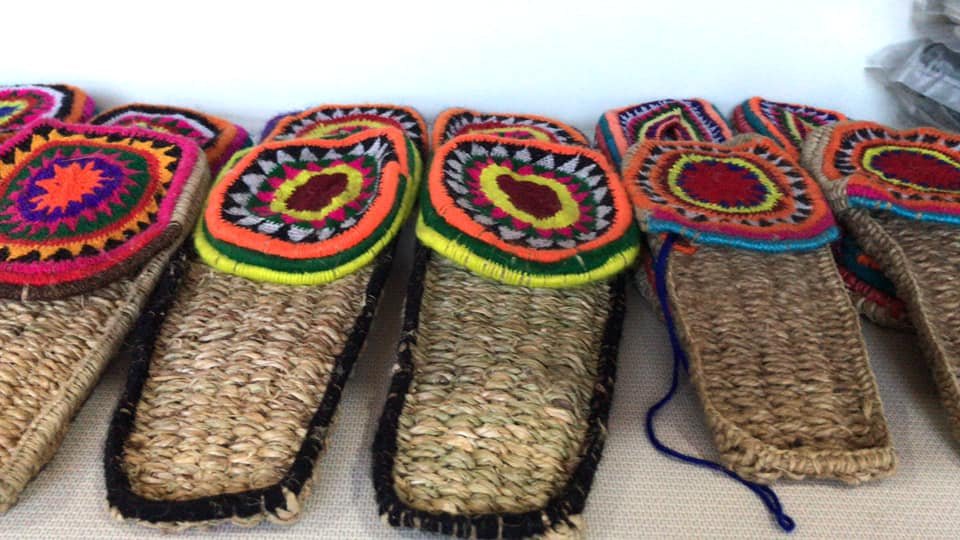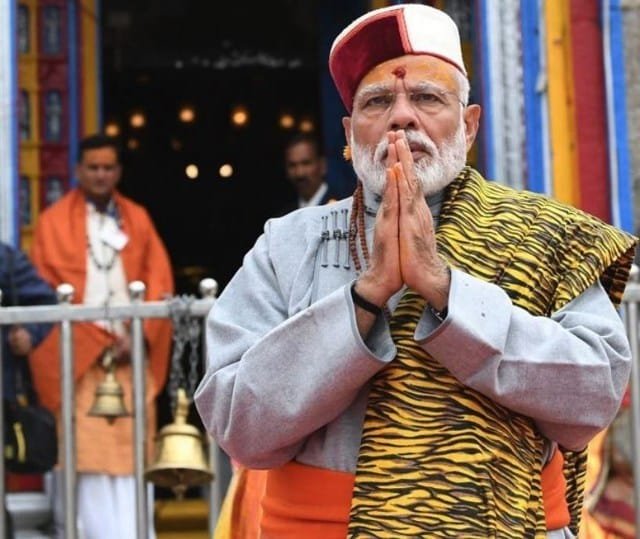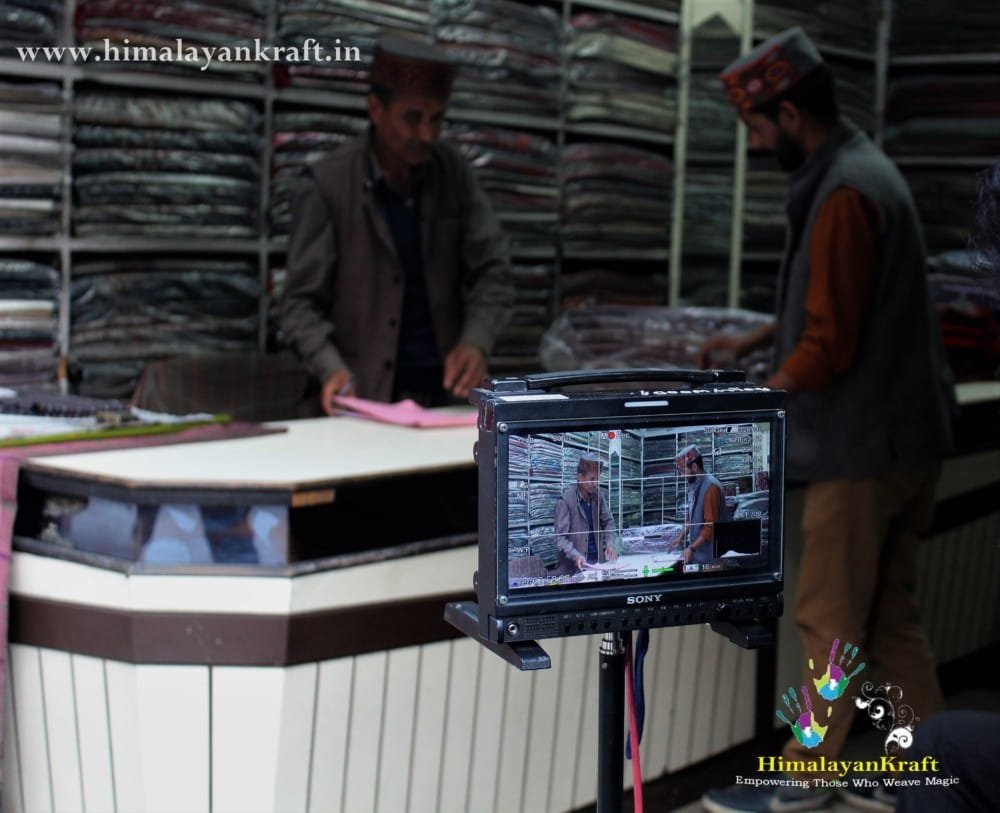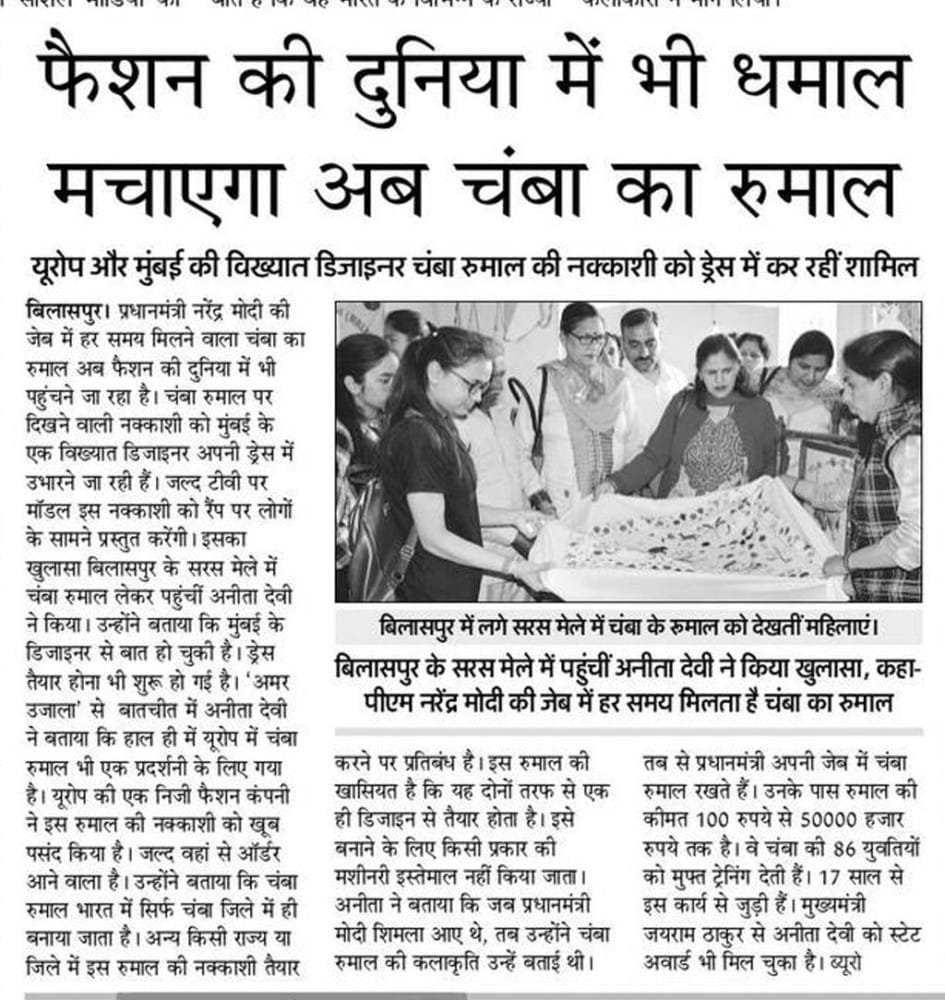Himachali Pulla, also known as Kulluvi Pulla, are traditional footwear crafted by artisans in the Kullu Valley of Himachal Pradesh, India. Here is a general overview of how Himachali Pulla are traditionally made:
- Materials:
- Hemp or Woolen Yarn: The primary material used for making Himachali Pulla is usually hemp or woolen yarn, which is sourced locally.
- Leather or Rubber Sole: The sole of the Pulla is often made of leather or rubber for durability and comfort.
- Design and Patterns:
- Traditional Patterns: Artisans often follow traditional patterns and designs that have been passed down through generations.
- Intricate Weaving: The distinctive feature of Himachali Pulla is the intricate weaving pattern. Skilled artisans use traditional weaving techniques to create the unique and beautiful designs.
- Weaving Process:
- Hand Weaving: Pulla is handwoven by skilled craftsmen using a traditional handloom.
- Interlacing Yarn: The artisan interlaces hemp or woolen yarn to create the upper part of the Pulla. The patterns can vary, and some Pulla may feature vibrant colors and intricate motifs.
- Sole Attachment:
- Attaching the Sole: Once the upper part is woven, the artisan attaches the leather or rubber sole to the base of the Pulla. This is often done using traditional stitching techniques.
- Finishing Touches:
- Trimming and Finishing: The Pulla is carefully trimmed to achieve the desired shape and size. Any excess yarn is removed, and the edges are neatly finished.
- Decorative Elements: Some Pulla may have additional decorative elements, such as small beads, embroidery, or colorful threads, enhancing the aesthetic appeal.
- Sizing and Fitting:
- Custom Fitting: Pulla are often custom-made to fit the wearer’s foot perfectly. Artisans take precise measurements to ensure a comfortable and snug fit.
- Drying and Setting:
- Air Drying: After assembly, the Pulla is allowed to air dry. This process helps set the shape and ensures that the footwear maintains its structure.
- Quality Check:
- Inspection: Craftsmen conduct a thorough quality check, ensuring that each pair meets the standards for craftsmanship, durability, and design.
- Usage and Cultural Significance:
- Cultural Attire: Himachali Pulla is an integral part of the traditional attire worn during cultural events, festivals, and ceremonies in the Kullu Valley.
- Symbol of Identity: The designs and patterns of Pulla may also carry cultural and regional significance, serving as a symbol of Himachali identity.
It’s important to note that the process may vary slightly based on the artisan’s individual techniques and the specific regional variations in the Kullu Valley. The handmade nature of Himachali Pulla adds to their uniqueness and cultural value.







